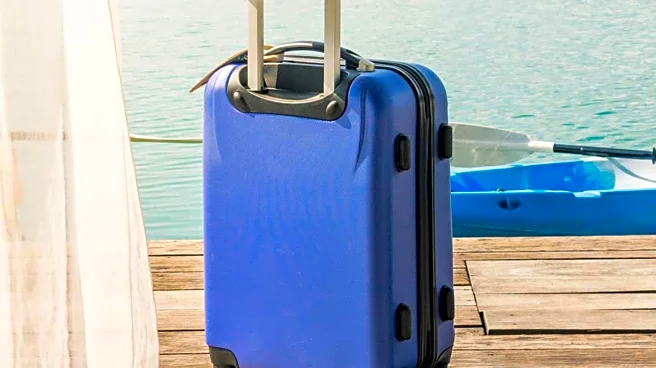What's Happening?
Recent data highlights that travelers over the age of 65 are leading in travel spending, averaging around €568 per trip, which is significantly higher than the €405 spent by younger travelers aged 18 to
24. This trend underscores a generational divide in travel preferences, with older adults often opting for more luxurious experiences such as business-class flights and upscale hotels. The European travel sector, recovering post-pandemic, is witnessing a shift in spending patterns, with average trip costs rising from €334 in 2020 to €510 in 2023. This increase is attributed to inflation and pent-up demand, reflecting a broader recovery in the tourism industry.
Why It's Important?
The increased spending by older travelers is reshaping the tourism industry, driving it towards more customized offerings. Tour operators are encouraged to tailor their packages to meet the diverse needs of different age groups, such as all-inclusive deals for younger travelers and culturally rich experiences for older adults. This shift is crucial for the €500 billion travel sector, as it seeks to cater to the evolving preferences of its clientele. The trend also highlights the importance of understanding generational differences in travel motivations, which range from relaxation and family reunions to cultural exploration and mental health benefits.
What's Next?
As travel trends continue to evolve, the industry is likely to see further customization in travel packages to accommodate the distinct preferences of various age groups. Tour operators may focus on creating more personalized experiences, leveraging the increased spending power of older adults and the assertive booking approaches of younger travelers. Additionally, the rise of hybrid work and concerns about climate change may influence travel patterns, with more individuals mixing work and vacation. The industry must adapt to these changes to remain competitive and meet the demands of its diverse customer base.
Beyond the Headlines
The generational differences in travel spending and preferences may have broader implications for the tourism sector, including ethical considerations around sustainable travel and the impact of increased travel on local communities and environments. As older travelers continue to spend more, there may be a push towards more responsible tourism practices that balance luxury with sustainability. Additionally, the rise in solo travel among retirees suggests a growing desire for self-directed experiences, which could lead to new opportunities for niche travel markets.









